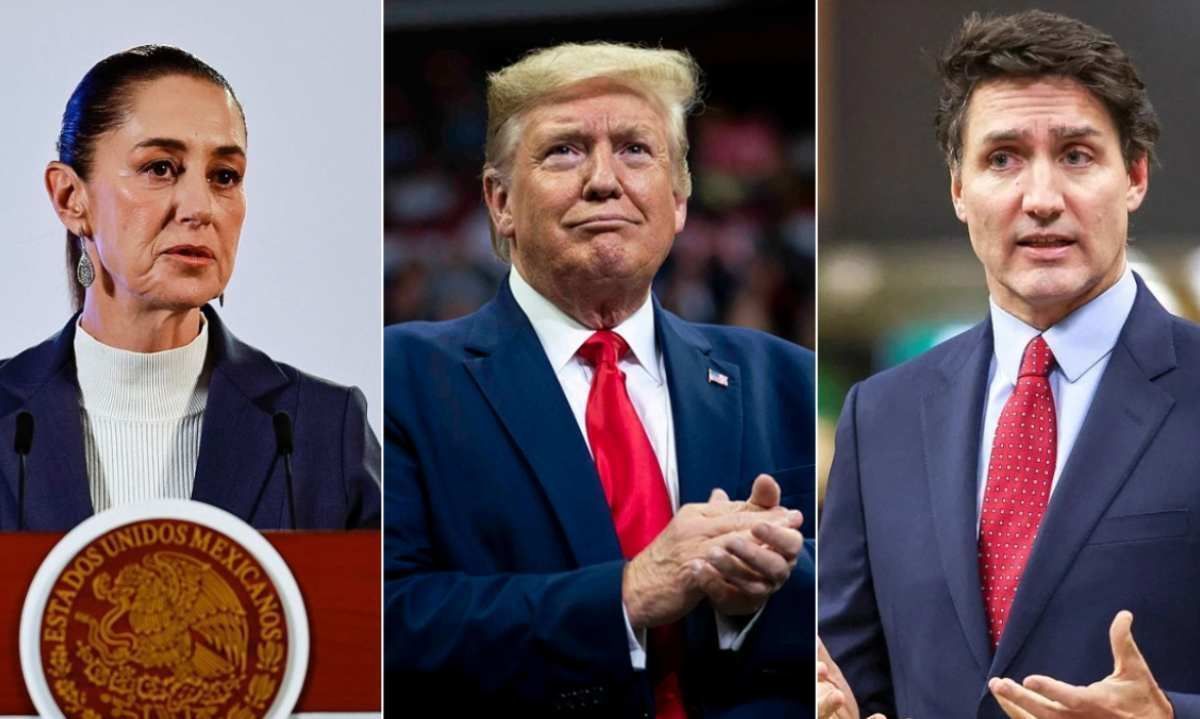
The next 30 days will be crucial in determining whether these tensions lead to lasting agreements or an escalation of protectionist measures in North America.
In an unexpected turn in trade relations between the United States, Canada, and Mexico, U.S. President Donald Trump announced a one-month delay on the implementation of 25% tariffs on Canadian and Mexican products. This decision came after both countries pledged to strengthen border security and take drastic measures against organized crime responsible for fentanyl trafficking.
Canada Strengthens Security with a 'Fentanyl Czar'
Canadian Prime Minister Justin Trudeau announced on X (formerly Twitter) that his government will appoint a "fentanyl czar" to lead the fight against drug trafficking. Additionally, Canada will increase its investment in border security, adding C$200 million to the already allocated C$1.3 billion for surveillance and border control.
"We will list cartels as terrorist organizations, ensure 24/7 border surveillance, and launch a Canada-U.S. Joint Strike Force to combat organized crime, fentanyl, and money laundering," Trudeau stated in his post.
Mexico Deploys 10,000 Soldiers to the Northern Border
Meanwhile, the Mexican government, led by President Claudia Sheinbaum, agreed to deploy 10,000 soldiers to its northern border to reinforce the fight against drug trafficking. Additionally, the administrations of Mexico City and Washington will use the one-month period to negotiate further agreements.
Sheinbaum also noted that as part of the deal, the U.S. committed to curbing the flow of assault weapons that empower drug cartels and enhance their operational capacity.
Impact on North American Trade Relations
Trade between the U.S. and Canada, valued at C$1.3 trillion annually, has been at risk due to the tariff threat. This trade relationship primarily involves natural resources such as minerals, oil, and lumber, as well as highly integrated sectors like automotive and energy.
Although fentanyl from Canada accounts for only 1% of the supply on U.S. streets, some analysts believe Trump used this issue to exert economic pressure on Canada, possibly aiming to renegotiate the United States-Mexico-Canada Agreement (USMCA), the successor to NAFTA.
Market Reaction and the Automotive Sector
The announcement of the tariff suspension generated positive reactions in the markets. Shares of key automotive sector companies, such as Ford and General Motors, rose by 1.6% and 2.3%, respectively, in after-hours trading. Mining and metals companies also experienced gains.
Diplomatic Conversations and Potential Future Negotiations
Trump spoke with Sheinbaum by phone on Monday, as well as separately with Trudeau in the morning and again in the afternoon. On Saturday, Canada had responded to the U.S. tariff threat with duties on $155 billion worth of American goods, scheduled to take effect on Tuesday.
The U.S. president also hinted at seeking key trade changes with Canada. "Did you know that American banks are not allowed to do business in Canada? Can you believe that?" he commented from the Oval Office, suggesting that his administration would push for changes in the bilateral trade framework.
Meanwhile, The New York Times cited a senior Canadian official stating that Canada was unlikely to receive a reprieve similar to Mexico. The Wall Street Journal, generally supportive of Trump, called the trade dispute "the dumbest trade war in history."




